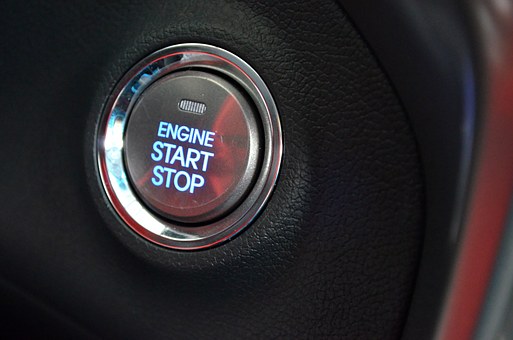
Keyless car theft: an unavoidable result of sloth*?
As it becomes ever less deniable that humans are naturally sloth-like** in their laziness (see here, here, and here), it is no wonder that vehicle manufacturers look to remove the requirement for the average buyer to complete the most menial of tasks. Keyless entry and start technology – which obviates that most monotonous task of scouring one’s own pocket or bag for a small plastic fob – is the obvious result. However, with keyless power comes keyless responsibility and a combination of lack of consumer awareness and technologically-advanced criminality has contributed to a surge in car theft.
Without wanting to act as a manual for more unscrupulous readers, keyless car-theft involves a relatively simple manoeuvre requiring just two pieces of reasonably easily-acquired radio equipment and a (hopefully not too difficultly-acquired) friend. By keeping a transmitter close to the target vehicle and then using a receiver to pick up the key’s signal, for example, through the front door of a house or from an adjacent restaurant table, the signal can be amplified and passed to the car, which opens and can be started with just one press. Thieves, one, keyless tech, nil.
Thankfully, the industry has noticed, leading to some attempts to thwart the less honourable members of society. Tesla’s approach? Owners can now turn off Passive Entry mode. Whilst this might solve the problem, it really just means that your ‘keyless’ entry again requires a button-press making it substantially less, well, keyless. The company’s second option allows the use of a phone application and internet handshake to negate the key entirely, but other than your phone being less likely to be kept near to your front door, this doesn’t really seem to combat the underlying issues.
A low-tech approach involves the use of a 19th century invention to overcome a 21st century problem – the Faraday cage. By providing an electromagnetic shield inside a pouch for your keys, FobGuard hope to corner the market in the prevention of keyless theft. However, this still requires an owner to remember to place their key in the pouch and to remove it to unlock the car, so the ‘solution’ still requires the use of hands – *yawn*.
Other ‘top tips’ involve using a GPS tracking system, purchasing a steering lock or other such large, unwieldy device, or switching off your key when not in use. With all of these looking to mitigate the problem rather than overcome it, do high-tech solutions fare any better?
Thankfully, the automotive technology wizards at ZF TRW are also trying their hand at crime prevention. A 2014 patent application notes that the travel time of unlock signals can be used to identify the delay introduced during nefarious retransmission. By requiring multiple back-and-forth trips of the signal between car and key, it isn’t even necessary to use highly-accurate – and correspondingly expensive – timing chips.
An alternative to the TRW approach, researchers from South Korea determined that relative signal strength (RSSI) can be used to determine whether an unlock attempt is legitimate or being provided by intervening relay equipment. The results from that paper show that whilst the method of providing an RSSI threshold has been shown to work, this may not be the case in all circumstances, and improvements look necessary before commercialisation can take place.
With low-tech solutions still leading the way for implementation, seemingly due to their relative simplicity, there is clearly room for substantial innovation in this area. The keyless theft boom is still relatively young and the craze for providing keyless technology in new vehicles doesn’t look set to be abated any time soon. So, if you’ve got a bright theft-preventing idea that keeps us car owners lazy, now is certainly the time to get that idea protected.
*No, not the animal.
**Now it’s the animal. But they’re not lazy, they’re just survivors: http://www.iflscience.com/plants-and-animals/sloths-arent-lazy-their-slowness-is-a-survival-skill/


